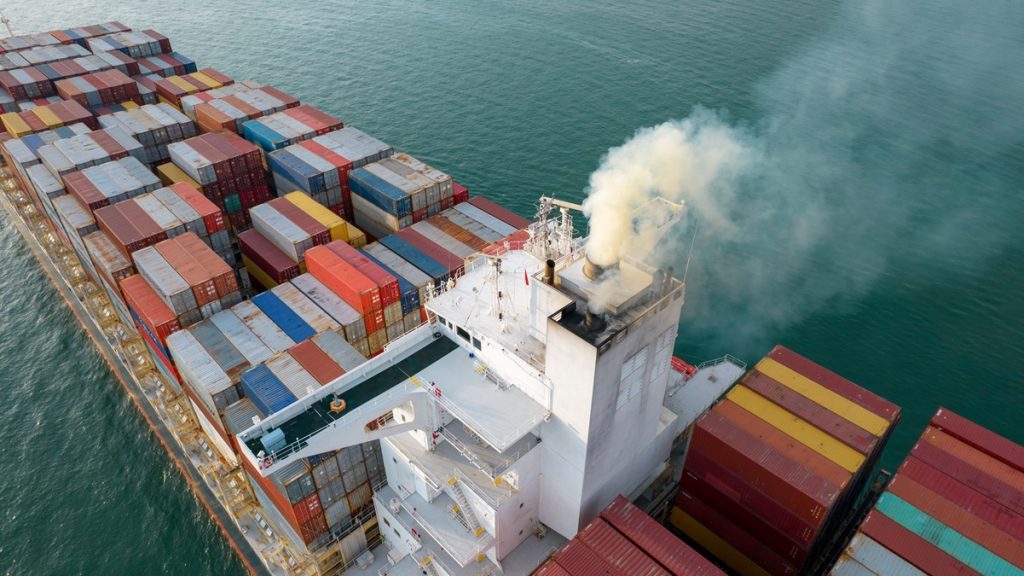As a future maritime leader and policymaker, my mind traveled to the 15th century times when Vasco da Gama and Bartholomew Diaz were exploring the world by using small ships and compared with the current situation where big maritime vessels intensively travel the world. I imagined many tonnes and litres of fossil fuels being combusted in the maritime industry, drastically releasing carbon dioxide (CO2) emissions into the atmosphere.
It creates the tension of climate runaway devouring the planet without action to limit the abnormal rise in CO2 from maritime vehicles. Recently, Chen and his fellow scientists found that 2.1% of CO2 emissions from the maritime industry alone positioned it fifth in CO2 emissions after Japan when considered a country. The situation scares and sets alerts for immediate transformation toward the future decarbonization of the maritime industry.
I remember the ruthless climate change crisis was proclaimed many years back, with some sectors, such as forestry, taking measures to fight it. The maritime industry was still asleep due to its exclusion from the Paris Agreement and Kyoto Protocol, the international binding instruments set to control CO2 emissions.
According to Wu, Li, Xiao and Yuen, the exclusion was due to the decentralized organizational structure and execution of the “Freedom of Seas” doctrine, which abstained from the interference of maritime activities. The maritime industry’s huge amount of CO2 emissions has now been noted. Since it is better later than never, maritime industry decarbonization in controlling climate change cannot be underrated.
READ RELATED: Race to Finance and Sustainability Initiative: How is Tanzania Prepared for Carbon (CO2) Emissions Trade?
Transformation measures should be undertaken, although they will be accompanied by challenges that will be turned into stepping stones toward a decarbonized maritime industry. The challenges discovered include the uncertainty that hits hard in the minds of maritime leaders and policymakers regarding how to switch to the net zero emission of CO2. Apart from that dilemma, there is inadequate finance for decarbonising the maritime industry.
Perhaps developed countries can afford it, but how about developing countries? It stands genuine that maritime investors with limited capital glance at decarbonization as a threat to their survival in operation. Inadequate funds would lead to natural selection because transformation might be unaffordable and difficult to adapt for smooth operation in the future.
Last but not least is the naked truth of poor coherence and confined inclusion in the maritime industry. As a result, there is variation in regulations among investors and charterers in the operation of the maritime industry.
However, shifting to green fuels has proven to be a sure way to rescue the globe from climate change. The uptake of near-zero CO2 emissions fuels, such as the use of green hydrogen, liquefied petroleum gas (LPG), and liquefied natural gas (LNG), brings back hope that decarbonization is possible. Green hydrogen, LPG, and LNG fuels are environmentally friendly and economically viable for use in the future maritime industry.
Their remarkable reduction of CO2 emission as compared to petrol and diesel qualifies them as low-carbon fuels. Meanwhile, ship redesigning by the installation of dual catalytic convertors would change the status of LPG and LNG from near zero to net zero CO2 emissions fuels through catalytic conversion of the left CO2 emissions into harmless products.
Also, green hydrogen and ammonia fuels do not contain carbon, implying they are naturally decarbonized with purely net zero emission characteristics, which are used in maritime vehicles. However, technology is needed to reduce the volume density of green hydrogen to ease its bulk storage and detoxify and increase the production of ammonia, which will be widely adopted for use in the maritime industry.
DON’T MISS OUT: Carbon Trading: Tanzania’s New Avenue for Economic Growth and Environmental Protection.
Furthermore, as the maritime industry is undergoing a revolution of decarbonization, maritime leaders and policymakers should concentrate on the carbon trading market to decarbonize the maritime industry by putting a price on carbon. The emerging market operates on the guiding principle that entities responsible for CO2 emissions from the maritime industry should be held accountable for decarbonization.
The maritime industry should be developed to work through carbon offset projects, such as regulating an overall limit or cap on the amount of CO2 within a specific shipping company. The cap is usually divided into allowances, providing the right to emit the prescribed amount of CO2. The allowance can be auctioned among shipping companies, which require enough allowances to cover their emissions.
The shipping company emitting less than its allocated allowances can sell the surplus to other companies exceeding their emissions limit. The carbon market motivates shipping companies to reduce CO2 emissions by creating financial incentives as an accelerator in decarbonization.
It creates a promising, cost-effective decarbonization method as shipping companies will strive to emit less and sell their surplus allowances for profit. Thus, maritime leaders and policymakers have a task to regulate and formulate supportive policies to enhance the carbon market and play a significant role in decarbonization.
Moreover, increased emphasis on global inclusion, especially in supporting developing countries through capacity building and technical cooperation, will tackle the barriers hindering decarbonization and also come together to formulate uniform rules, regulations and procedures that will ensure mutual sharing of costs and benefits among stakeholders and actors in the maritime industry. Inclusion will strengthen unity and ease the burden of decarbonization of the maritime industry.
Ultimately, as a future maritime leader and policymaker, I have a critical role in decarbonising the maritime industry. With an increased concern and high enthusiasm in the fight against climate change through lowering to near zero and, if possible, to net zero of CO2 emissions, I strongly recommend that the maritime industry embrace green fuels, effective utilization of the carbon trading market and promote global inclusivity among the stakeholders including shipping companies, fuel suppliers and governments to foster cooperation knowledge sharing and coherence in the era of transformation towards a decarbonized maritime industry.

